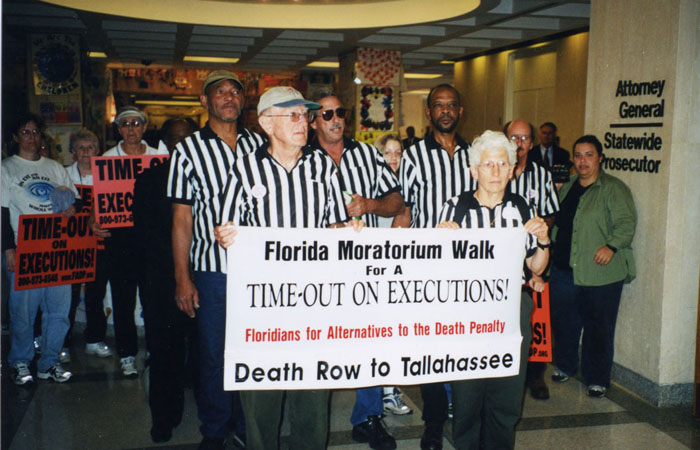Collections : [National Death Penalty Archive]
National Death Penalty Archive
Researchers, writers, activists, and records on capital punishment in the United States.
Search Constraints
Start Over You searched for: Collecting Area National Death Penalty Archive Remove constraint Collecting Area: National Death Penalty Archive Date range 2007 to 2009 Remove constraint Date range: <span class="from" data-blrl-begin="2007">2007</span> to <span class="to" data-blrl-end="2009">2009</span>Search Results
Card File Index of Executions, Undated 2.8 cubic ft.
Watt Espy kept a series of index cards, grouped mainly by state, that records information about executions on American soil (colonies, states, territories) since the 1600s. Some cards contain lots of information, including name, place of execution, method, and details of the crime. Other cards have very little information aside from the fact that someone was executed. Sometimes there is not even a name—just "two slaves" or "pirate". There are additional categories for federal, military, and indigenous executions. There are two different card sizes; for the 3x5 inch cards, each state, territory, or other main division is identified with a manila tab. Subdivisions are marked with blue, unlined cards and are intended to mirror the arrangement of materials in Series #2 as closely as possible.
Case Files, 1947-2012, Undated 19 cubic ft.
This series contains a file for every execution or sentence of death given to a woman or a juvenile that was known to Victor L. Streib. Some of the case study files are simply photocopies of Watt Espy's research cards, especially in cases where Espy's research is the sum total information available that particular execution. Many of these cards are from before 1976, when the death penalty was re-instated in America. Due to improved record-keeping in the modern era, case files from recent years, especially ones that Streib advised in some capacity, may contain significantly more information than others. Information pertinent to these cases vary greatly by individual depending on the state, the era, as well as media coverage of the case. The research collection is up-to-date as of 2012, so any executions, pardons, or reversals that went forward since that date will remain in the series they were in at the time these papers were acquired by the archives.
Cases and Surveys, 1981-2012 5.66 cubic ft.
This series contains articles pertaining to specific cases, arranged by state and then by last name of the case subject. The list includes the District of Columbia and is missing four states: Alaska, North Dakota, West Virginia, and Wyoming. California is the most represented, carrying more extensive materials in the cases of Robert Alton Harris, Michael Morales, and Darrell "Young Elk" Rich. Similarly, Texas contains more material for Juan Garza and Thomas Miller-El. Federal cases are filed under "Federal" and then arranged alphabetically from there with the section consisting mainly of death penalty surveys, material on Timothy McVeigh, and a few other federal cases. Various surveys that have been conducted on the death penalty are included along with the articles.
Catholics Against Capital Punishment Records, 1972-2010 0.80 cubic ft.
Celeste Fitzgerald Papers, 1996-2012 6.0 cubic ft.
Communications, 1983-2013 2.6 cubic ft.
The communications series encompasses mailings, newsletters, and events that Mr. Bonowitz participated in.
